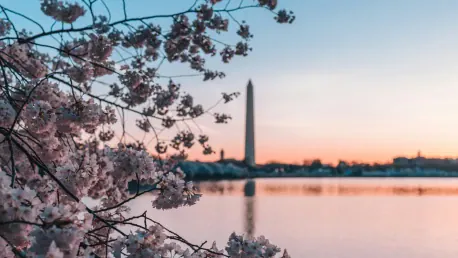Washington, D.C. Mayor Muriel Bowser recently voiced her strong objections to a House Republican stopgap funding plan that could potentially result in a significant financial shortfall for the nation’s capital. Bowser’s concerns center around the GOP’s continuing resolution (CR), aimed at keeping the government operational beyond a pending shutdown. If passed, this plan would require D.C. to revert to the previous fiscal year’s funding levels, leading to an immediate $1.1 billion cut from the District’s budget. This abrupt reduction comes as a shock, given D.C.’s unique financial and operational status, which necessitates a consistent budget that aligns with its fiscal 2025 provisions.
Unique Financial Standing of Washington, D.C.
Mayor Bowser emphasizes the fundamental differences in how Washington, D.C. operates compared to federal agencies. Unlike federal entities that can absorb a reversion to prior funding levels, D.C. functions on multiple levels—city, county, and state—addressing the daily needs of its residents, businesses, and visitors. Reverting to fiscal 2024 levels is particularly detrimental given that D.C.’s budget had already been congressionally approved for fiscal year 2025. Bowser and Del. Eleanor Holmes Norton (D-D.C.) argue that bypassing this approved budget could disrupt essential services, from education and public safety to infrastructure and health care, that the city is obligated to provide.
The continuing resolution proposed by House Republicans neglects the long-standing provisions that previously allowed D.C. to maintain its budget at approved levels until the new fiscal year is established. By aligning D.C.’s funding with that of federal agencies, the resolution fails to account for the city’s unique governance structure. As Bowser and Norton assert, this arbitrary alignment risks undermining well-established local programs critical for the effective functioning of the city. The ongoing debate underlines the tensions between federal oversight and local autonomy, a persistent issue in D.C.’s unique administrative landscape.
Political Tensions and Implications
Despite the urgency conveyed by D.C.’s representatives, the amendment proposed by Norton to maintain the city’s fiscal 2025 spending levels was blocked in a party-line vote within the House Rules Committee. This move, according to Bowser, reveals a lack of consideration for the substantial impact such cuts would have on the city. House Appropriations Chair Tom Cole (R-Okla.) indicated that budget discussions remain complex, involving over $1 trillion. Nevertheless, he downplayed D.C.’s budget cut as a central issue, reflecting a broader prioritization of federal funding allocations.
The proposed Republican-led stopgap is part of a broader strategy to prevent a government shutdown by freezing funding at fiscal 2024 levels while allowing targeted increases in defense spending and cuts in nondefense programs. Although some provisions have been included at the White House’s request, question marks over the administration’s support for D.C.’s fiscal dilemma remain. Democrats, such as Rep. Jim McGovern (D-Mass.), have pushed back against these proposals, highlighting the severity of the impact on local services such as law enforcement and education. McGovern stressed that it is unjust for D.C. to face such financial constraints given that its funding is primarily sourced from residents and businesses who lack congressional representation.
Future Considerations and Local Governance
Washington, D.C. Mayor Muriel Bowser has recently expressed strong disapproval of a House Republican stopgap funding proposal that threatens a major financial shortfall for the U.S. capital. Bowser’s concerns center on the GOP’s continuing resolution (CR), designed to keep the federal government running past an imminent shutdown. Should this plan pass, it would force D.C. to revert to the previous fiscal year’s funding levels, slashing $1.1 billion from the District’s budget almost immediately. This sudden cut is especially alarming given D.C.’s unique financial and operational situation, which demands a stable and predictable budget in sync with its fiscal 2025 plans. Bowser argues that the proposed funding cut jeopardizes essential services and undermines the District’s ability to function effectively. The mayor’s stance highlights the urgent need for a federal budget plan that considers D.C.’s distinctive needs and ensures that it continues to receive adequate funding to sustain its operations and services.









